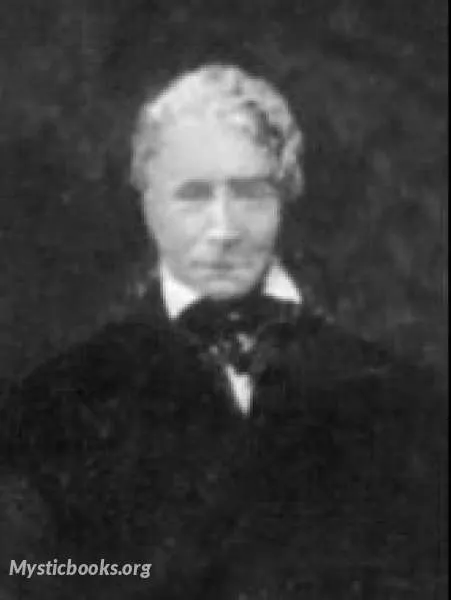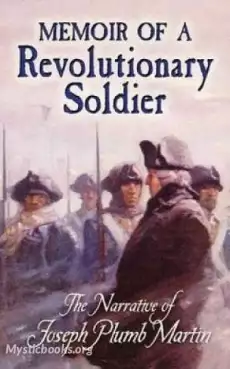
Timeline
Title
Country/Nationality
Joseph Plumb Martin
Joseph Plumb Martin was a soldier in the Continental Army and Connecticut Militia during the American Revolutionary War, holding the rank of private for most of the war. His published narrative of his experiences, re-discovered in the 1950s, has become a valuable resource for historians in understanding the conditions of a common soldier of that era, as well as the battles in which Martin participated.
Joseph Plumb Martin was born in Becket, Massachusetts on November 21, 1760 to the Reverend Ebenezer Martin and Susannah Plumb. At the age of seven, he was sent to live with his grandparents in Milford, Connecticut. Because his family was well-to-do (his father studied at Yale), Martin was able to receive a well-rounded education, including reading and writing.
When Martin was 15, in 1775, he was eager to join the war effort following the Battles of Lexington and Concord. His grandparents initially opposed the idea, but agreed after Martin vowed to run away and join a naval ship as a privateer if he was not allowed to join. He joined the Connecticut Militia in June 1776 and was assigned duty in the New York City area, arriving just before the opening of the British Long Island Campaign. His first tour of duty ended In December 1776, and he returned home just prior to the Battles of Trenton and Princeton. After a restless winter and spring back in Connecticut, the 16-year-old veteran reenlisted in the Continental Army on April 22, 1777, signing on for the duration of the American Revolutionary War. He served with the 17th Continental Regiment, also known as the 8th Connecticut Regiment under the command of General James Varnum.
Martin participated in such notable engagements as the Battle of Brooklyn, the Battle of White Plains, the siege on Fort Mifflin and the Battle of Monmouth. He encamped at Valley Forge, witnessed John Andre being escorted to his execution and was also present during the climactic Siege of Yorktown. He was assigned to Light Infantry in 1778, attaining the rank of corporal. In the summer of 1780, under Washington's order to form a Corps of Sappers and Miners, he was recommended by his superior officers to be a non-commissioned officer of this regiment, and in being selected, was promoted to sergeant. Prior to Yorktown, the corps was responsible for digging the entrenchments for the Continental Army. During the battle, they were also a vanguard for a regiment commanded by Alexander Hamilton, clearing the field of sharpened logs called abatis so that Hamilton's regiment could capture Redoubt #10.
Martin was discharged from duty in June 1783, a few months before the Continental Army disbanded the following October. He taught in New York state for a year, and eventually settled on Maine's frontier, becoming one of the founders of the town of Prospect, near modern-day Stockton Springs. Over the years, he was known locally for being a farmer, selectman, Justice of the Peace and Town Clerk (the last position being held for over 25 years). He married Lucy Clewley (born 1776) in 1794 and had five children, Joseph (born 1799), Nathan and Thomas (twins, born 1803), James Sullivan (born 1810), and Susan (born 1812). He also wrote many stories and poems over the years, most famously a narrative of his experiences during the war in 1830.
In 1794, he became involved in a bitter land dispute with Henry Knox, former Major-General in the Continental Army and Secretary of War under George Washington's administration as President. Knox claimed that he owned Martin's 100-acre (0.40 km2) farm, as well as the surrounding 600,000 acres (2,400 km2) in an area now known as Waldo County, Maine. Martin said that this was not true, and he had the right to farm the land. In 1797, Knox's claim was upheld. Martin's 100-acre farm was valued by the Commissioners One appointed by the settlers, one by the Proprietors and the third by the first two. Martin's was appraised for the sum of $170, payable over six years in three installments either in cash or in farm products. He could not raise the money and begged Knox to allow him to keep the land. There is no evidence that Knox even acknowledged his plaintive letters and appeared to let him remain on the land. Plumb Martin farmed only eight(8) acres of the original 100 he opted for. Knox died in 1806, never demanding payment from Plumb Martin. By 1811, his farmland was cut by half, and by 1818, when he appeared in the Massachusetts General Court with other Revolutionary War veterans to claim a war pension, he owned nothing.
Joseph Plumb Martin died on May 2, 1850, at the age of 89. He is buried with his wife at the Sandy Point Cemetery, outside of Stockton Springs, Maine.
Books by Joseph Plumb Martin

A Narrative of a Revolutionary Soldier
Joining the Continental Army as a teenager, Joseph Plumb Martin spent the next eight years fighting in the Revolutionary War as an enlisted man. His memoirs tell in detail his experiences during that time...the bitter cold, hunger, loss of life, long...